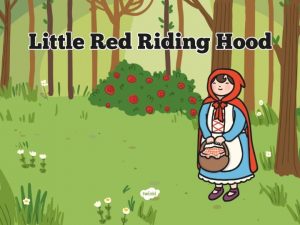Applying PostColonial Theory to The Girl who was











- Slides: 11

Applying Post-Colonial Theory to The Girl who was Saturday Night By: Heather O’Neill

I have recently read The Girl who was Saturday Night I by Heather O'Neill. In this book I noticed that there is always a clear social structure within the city, whether it be that Nicholas and Nouschka are 'above' any other, or that men in general are seen as better than women.

In the very beginning Nouschka, whose point of view we are reading from, points out how different the Québécois girls were ". . . you could do anything you wanted with the Quebecois girls" (O'Neill 1). On the first page I noticed the first sign of post-colonialism, a man being able to anything he pleases with these women screams social hierarchy to me. The way the statement is worded makes it seem as if they just are not allowed to say no; at least if they want to make any money.

This extends into the second page where Nouschka finishes her statement, and ending the chapter with saying, ". . . I remember reading about how ships full of girls[orphans] were sent from Paris to New France to marry the inhabitants. . . They were pregnant before they had a chance to unpack their bags. They didn't want this. . . They spoke to their children through gritted teeth. that's where they Quebec accent came from. The Nation crawled out from between their legs" (O'Neill 2). This entire paragraph shows just how prominent the social class was at the time. Even though the girls did not want to be pregnant, so badly that the Quebec accent came of their hate for their children, they had no choice but to accept it; it was what they were sent to New France to do.

There was also a defined social class when Nicholas and Nouschka went out biking. They would always ride in the middle of the road not caring about the blaring horns of the cars behind them; they were too good to move out of the way, they owned these streets. No one ever doubted this fact because they were Nicholas and Nouschka, the children of Etienne Tremblay and they used to perform on talk shows; they were famous, and everyone else was not,

Another thing revealed in the text is the fact that there is are ways in which gender and class that combine to form how people in this timeline perceive themselves, others, and the way in which they live.

One example of this is shown when Nicholas and Nouschka met their mother; she went on and on about how good their clothing was, and their life in turn must have been great. “Nicholas and I immediately shot a knowing and weary glance at one another. She had loved us on television. The same way that everybody had loved us, which was the same thing as not loving us at all” (O’Neill 95). Just as anyone else, their mother assumed that they had it all, and were not living in a junk filled apartment living a life of crime.

Another is shown when Nouschka was having a bad day, and as usual went to find Misha; when she found him he was in a restaurant, and she went to join him. As Nouschka talks about her day to Misha, a waitress comes over and looks at Nouschka as if she were the gum stuck to the bottom of her shoe, most likely assuming that Nouschka was only with Misha for his money. The waitress assumed this without knowing Nouschka in the least, but that was how people were raised, “If it walks like a duck and quacks like a duck, than it must be a duck.

About ¾’s through the book I found a conversation between Raphael an Nouschka that I think resembles the beginning of the book where the Quebecois orphans were made to have the children of the inhabitants of New France, and have basically no rights. In this particular situation Nouschka is pregnant, and Raphael informs her that the are moving to the country, completely out of the blue, and gave her no choice in the matter except to start packing. . .

Previous Continued. . . “I had no intention of leaving and living in the boonies. I was outraged. . . “[Nouschka] Well it’s been nice being married to you, baby, ” I said. “But I guess we’ll have to get a divorce. ”” (O’Neill 287). As you can see in the quote, Nouschka attempted to fight back, but Raphael left, then came back and started packing up their house, and Nouschka eventually caved and helped him. I think this is a perfect example that not much had changed since the start of the population of New France in the sense that women still listened to their partners because they felt guilty if they did not do as they were told.

Works Cited ONeill, Heather. The Girl Who Was Saturday Night. Quercus, 2015.
 Postcolonial theory literature
Postcolonial theory literature Theorylo
Theorylo Key terms of post colonialism
Key terms of post colonialism Burudika na coke baridi
Burudika na coke baridi Stone girl bone girl
Stone girl bone girl Girl xxxx
Girl xxxx Once upon a time there was a girl and the girl has a shadow
Once upon a time there was a girl and the girl has a shadow Postcolonial criticism slideshare
Postcolonial criticism slideshare Ethnicity in postcolonial literature
Ethnicity in postcolonial literature Applying educational theory in practice
Applying educational theory in practice Student development theory academic advising
Student development theory academic advising Hình ảnh bộ gõ cơ thể búng tay
Hình ảnh bộ gõ cơ thể búng tay



















